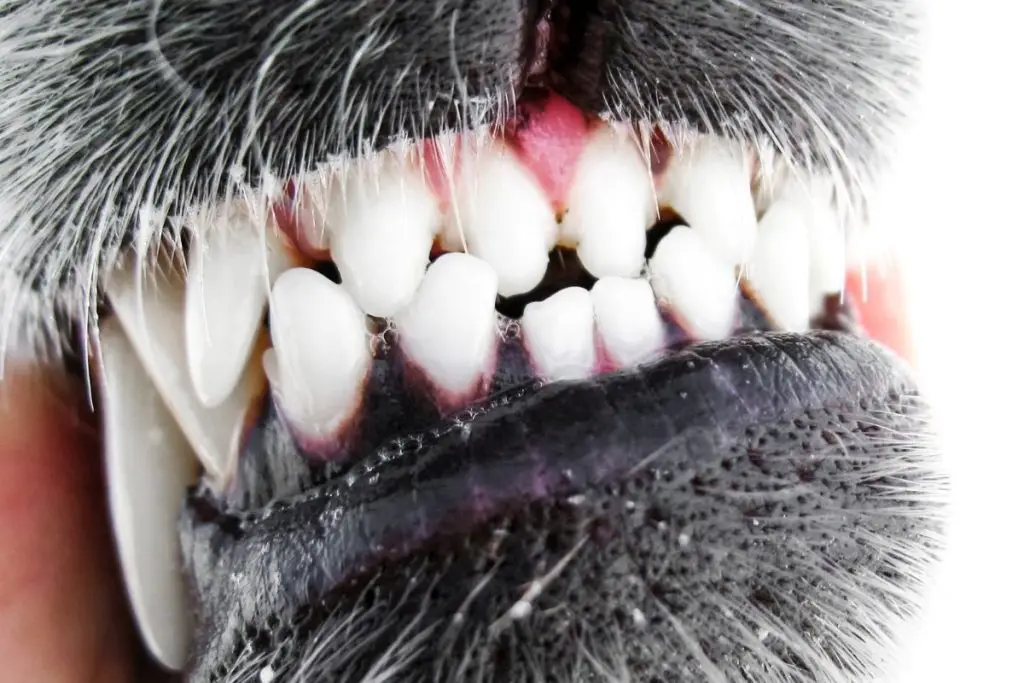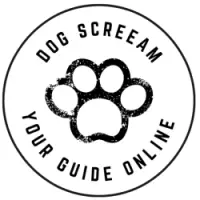How to clean dog teeth without brushing
Brushing our dog’s teeth is a tedious task that we all know we should do, but let’s be honest–it’s a significant hassle.
While brushing your dog’s teeth a few times a month is the most effective approach to avoid gum disease, especially in sensitive breeds, any attention to dental care is better than none.

Dog dental hygiene is critical in reducing your dog’s chances of painful gingivitis or costly tooth extraction.
Today, we’ll discuss how to brush your pet’s teeth without using a brush and paste. Continue reading to discover how to brush your pet’s teeth without using a toothbrush! From dental wipes to inflated dog toys to coconut oil and everything in between, we’ll cover it all.
Luckily for you, there are several non-brushing methods for maintaining your dog’s dental hygiene.
After conducting some study, I learned that around 95% of dog owners, including many specialists, do not regularly clean their pets’ teeth.
This doesn’t, however, exclude the possibility of keeping some amount of dental hygiene.
What can you do about it?
Dental treats
Dental treats, such as the renowned Greenies, are products that many animal lovers swear by when it comes to canine dental care & bad breath.
These snacks are frequently made with a blend of chlorophyll-rich greens & herbal blends that aid in the fight against plaque-causing bacteria.
Plaque and buildup are scraped away while your dog chews on the chew treat. Owners vouch for these items, according to anecdotal evidence. The only disadvantage is the cost as well as the commitment to use them regularly. Furthermore, Greenies Dental Chews are high in calories and might lead to weight gain in dogs over time.
Doggy Dental Spray
Doggy dental spray is frequently available at your local pet store (such as PetSmart or Petco). Even if they don’t like the “spray” portion, dogs typically enjoy the spray after it’s in their mouth. The spray is delicious, helps eliminate plaque from their teeth, and freshens their doggie breath.
Because sprays take longer to work than other treatments, they are generally one of the final things to try.
Foods
Healthy snacks for your canine buddy include a variety of fruits and vegetables. They’re fantastic since they’re low in fat and calories, are popular with most dogs, and may help keep your dog’s teeth clean!
Apple slices, raw carrots, raw pumpkin, sweet potato, & squash are all delectable human meals that help scrape plaque and buildup off your dog’s teeth.
Several dog food products are specifically designed to help clean teeth while a dog is eating; however, this is not a good long-term solution and would not protect their lips as effectively as brushing.
Coconut Oil
The advantages of coconut oil for people are well-known, but they don’t end there. Coconut oil has antibacterial properties. Plague-causing germs can be reduced by putting coconut oil on your dog’s teeth and gums. What’s the best part? If your dog doesn’t like it when you rub her teeth, you can add coconut oil to her diet, and it will work just as well.
Raw Bones
This is something you should discuss with your veterinarian first. On the other hand, raw bones are considered highly beneficial for doggie oral health, provided they permit you.
When your dog eats a raw bone, the connective tissue is ripped off and chomped down, cleaning not just the surface of the teeth but also the crevices between them. Use a raw bone instead of a cooked one. Cooked bones are harmful to dogs in every way.
Raw bones are an excellent way to help clean your dog’s teeth while also satisfying their want to chew. While cooked bones may splinter & cause all sorts of issues for your pet, raw bones are an excellent way to help clean your dog’s teeth while also satisfying their desire to chew. Keep in mind that you’ll want to select bones that are the right size for you. A Great Dane could choke on a chicken wing, while a Yorkie would struggle with a cow femur.
Dog Dental Chews
Canine dental chews Your dog’s teeth will be polished as he fulfills his natural need for a tasty reward. Plus, your dog is too preoccupied with its rewards to cause any problem. WHIMZEES® dental chews are a fantastic option for pets of all sizes & ages. WHIMZEES® non-GMO dental chews are made with potato starch for flexibility and easy digestion. They include no artificial additives, grains, gluten, colors, or additives. These chews are designed to remove plaque and tartar while polishing a dog’s gums to a sparkling gloss. These veggie chews are hypoallergenic and manufactured with only six ingredients, eliminating bacteria that cause bad breath. Dental chews for dogs come in various sizes and forms, including ridges & nubs that scrape into gaps between the dog’s teeth to promote blood flow through the gums. The hollow shapes & gaps make it easier for dogs to grab and chew evenly. When your dog has a dental chew within reach, always keep an eye on them.
Chew Toys
If you have a playful dog, they will love chewing on a chew toy, and that you will like how it alleviates their boredom instead of chewing on your shoes.
Chew toys are one of the most efficient methods of keeping your dog entertained and active. Providing pet dogs with a chew toy satisfies their natural want to chew while also engaging them & enhancing their oral health. Dogs of any age use their teeth to investigate their surroundings.
Gnawing alleviates teething discomfort in puppies and engages the brains of adult canines. We propose rotating several types of tiredness chew toys to keep canines occupied. These toys come in various shapes & sizes, so you are sure to find something that appeals to your dog’s playful side.
Cleanings by a Professional Veterinarian
Ongoing professional cleanings by your veterinarian are an essential part of protecting your beloved friend’s dental health. Veterinarians are experts in detecting, preventing, and treating oral issues that would otherwise go unreported. Oral examinations and cleanings are required for most dogs at least once a year so that veterinarians may look for early signs of severe issues. Periodontal disease is more common in some breeds, such as Bulldogs, Yorkshire Terriers, or Dachshunds. Every six months, they may require frequent cleanings. Veterinarians can remove plaque underneath the gum line, which toothbrushes can’t reach. X-rays are taken during dental cleanings to assess the condition of the jawbone and tooth roots. While your pet dog is under general anesthesia, veterinarians will scale & polish his teeth to eliminate plaque and tartar. Teeth can also be safely filled or extracted by veterinarians. We recommend prioritizing veterinarian oral examinations, even though it is the most expensive & time-consuming choice. Your dog’s teeth will appreciate it!
Dental Friendly Diet
Feeding your dog a meat-rich, low-carbohydrate, low-sugar diet is another sure-fire approach to maintain their long-term oral health. Even if a kibble brand claims to improve dental and oral care, it doesn’t imply it contains all of the essential elements.
To make up their components, many people utilize high-carb filler meals like oat as well as wheat, starches, and maize, which is terrible for your teeth. Plaque feeds on carbohydrates and generates acids that degrade over time the enamel of your dog’s teeth and travel into the digestive tract, causing digestive enzymes to malfunction. This can result in a weaker immune system, which can contribute to a variety of health problems in your pet, including heart disease, obesity, and liver illness.
Dogs are physiologically programmed to eat a high-meat-rich diet, which helps them maintain a naturally low pH, facilitates digestion, and maintains their teeth in decent condition. A balanced, physiologically appropriate diet results in a calmer stomach, a healthier mouth, or even better breath.
Tooth wipes
If your dog is okay with you stick your head in their mouth but freaks out at the sight of a toothbrush, tooth wipes could be the way to go. They make it possible for you to clean your dog’s teeth by eliminating plaque, tartar, and germs that cause foul breath. All it took was a quick wipe of a tiny towel around the borders of their gums and teeth.
Bully Sticks
You may want to offer them something that will stay longer than just a dental treatment but is less messy than just a raw bone and tastier than a toy. Most dogs’ all-time favorite chew is probably bully sticks. These rough chews will keep your dog engaged while satisfying their chewing drive and removing plaque and tartar off their teeth. What can be better than that? Just keep an eye on your pet dog because some dogs can ingest huge bits. Also, because they are a higher-calorie treat, don’t offer too many of them.
Water Additives
Today’s market has a plethora of excellent water additives. They enable dental care as easy as putting a few drops of liquid in your dog’s water dish. Some dogs are disgusted by the taste or odor. If your dog responds to water additives, it’s one of the simplest ways to improve oral hygiene.
